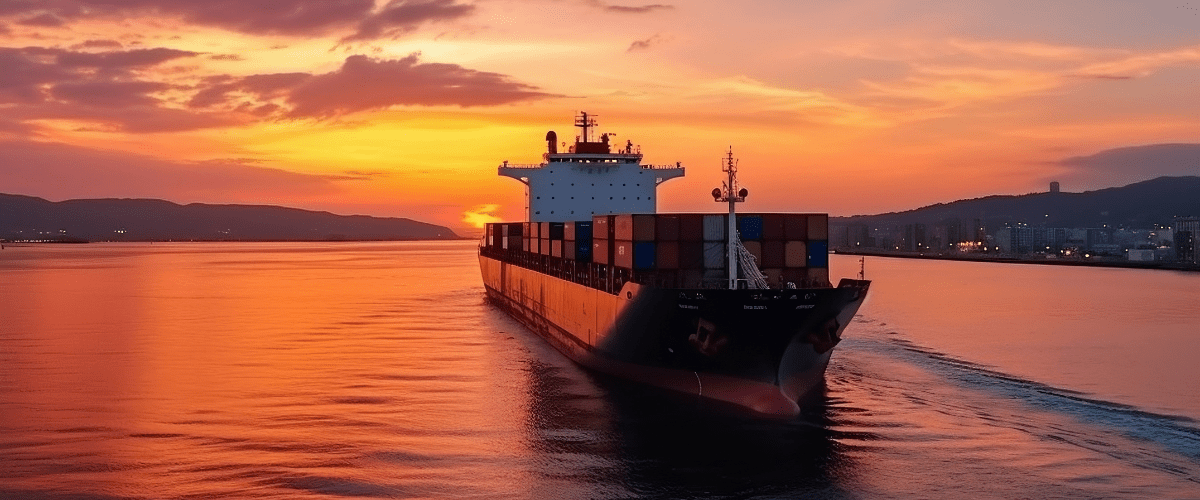Global commerce is, at its very core, an intricate and complex web. Spanning continents and countries, shippers need to have a near-omniscient level of customs clearance awareness when it comes to local laws and regulations.
A multifaceted process that interweaves bureaucracy, law, and logistics, customs clearance serves as a linchpin in the landscape of international trade. This blog post unravels the complex steps that form this vital procedure, elucidating the need for exacting attention to detail and regulation.
The Customs Clearance Process: An Overview
Customs clearance is an intricate procedure that requires precision and adherence to international laws and regulations. Its significance extends beyond legalities, fostering trade, safeguarding consumers, and ensuring national sovereignty. The process unfolds through several critical stages:
- Document Preparation: Includes meticulous assembly of vital documents such as commercial invoices, packing lists, bills of lading, certificates of origin, licenses and permits. Incorrect or missing documentation can lead to delays, fines, or seizure of goods.
- Customs Broker Engagement: Involves enlisting the expertise of a licensed customs broker versed in international trade laws. This step ensures professional handling, guidance on legal requirements, and streamlining the overall process.
- Goods Classification: Utilizing the Harmonized Tariff System (HTS) code to classify goods in alignment with World Customs Organization guidelines. Accurate classification is crucial to determining applicable duties and taxes, in addition to other government agency requirements, and mistakes can lead to costly penalties.
- Customs Declaration: Submitting the customs declaration, often electronically, to provide detailed information on the goods, their value, intended use, and relevant tariffs. Failure in accurate declaration can result in legal consequences up to the potential loss of import privileges.
- Examination and Valuation: Undergoing physical inspection by customs officers or other government agencies to confirm the information and assess the goods for duty calculations or other national risks such as to consumer safety. This step may require time-consuming lab tests or certifications and can uncover potential violations. Although exams may be rare and/or randomized, utilizing a defensible valuation methodology and other reasonable care efforts can help to facilitate a smooth closure and release of your merchandise.
- Duty and Tax Payment: Fulfilling legal obligations by paying relevant customs duties, taxes, and tariffs. Various payment methods exist, and a delay or failure in payment can result in costly consequences.
- Release and Delivery: The release of goods for onward delivery follows confirmation of all legal and procedural requirements. Timely release avoids costly demurrage storage charges at the port. The release also includes coordinating with shipping and transportation services to ensure timely delivery.
Consequences of Failure to Adhere to Customs Clearance Protocols
In a global economy where time, efficiency, and integrity are paramount, understanding the potential consequences of failure in customs clearance protocols is essential for anyone engaged in international trade. Whether it’s a small enterprise shipping a single package or a multinational corporation with goods traversing the globe, the pitfalls are real, and the costs can be considerable.
Failure to meet these stringent standards can lead to various forms of penalties and disruptions, some of which can have a long-lasting impact on a company’s operations and reputation. The range of potential issues is vast, encompassing everything from administrative fines to legal actions. Even seemingly minor oversights can escalate into significant problems, affecting not only the involved businesses but potentially rippling through the entire supply chain.
- Fines: Penalties for incorrect declarations, misclassifications, erroneous valuations, or failure to provide mandatory information can be hefty and affect the company’s bottom line.
- Fees: Additional costs for extended examination, legal inquiries, or third-party inspections. These expenses can pile up, particularly if goods are held for extended periods.
- Detention: Temporary withholding of goods for non-compliance with regulations, leading to delays, storage fees, and potential loss of perishable goods.
- Demurrage and Per Diem: Extra charges for storage or holding of goods at a port, warehouse, or terminal in the case of demurrage and failure to return a shipping container timely in the case of per diem. These can increase rapidly if issues are not resolved promptly.
- Delays: Time lags due to paperwork inaccuracies or compliance issues can affect the entire supply chain, impacting other businesses, causing missed opportunities, and harming reputation.
- Legal Repercussions: Failure to comply with statutes and regulations may result in legal actions, including litigation, and could affect the ability to trade in the future.
- Reputational Damage: Regular issues with customs clearance can harm a business’s reputation, affecting relationships with clients, partners, and governing bodies.
- Other Repercussions: Including potential exclusion from future trade activities, loss of specific trade privileges, or even criminal charges depending on the severity of the violation.
Challenges and the Power of Modern Solutions
The intricacy of customs clearance procedures can be a minefield, even for seasoned professionals in the field of international trade. A variety of challenges arise from this complexity, potentially exposing businesses to obstacles, delays, and additional costs. In this demanding environment, innovation is key, and advanced solutions like KlearNow.AI are transforming the landscape in significant ways:
Simplifying Complexity: Customs clearance requires compliance with an array of international laws, intricate documentation across various languages, and navigation through regulatory obligations. KlearNow.AI streamlines this complexity by automating these processes. The company’s intelligent platform interprets and adapts to various international regulations, recognizes, classifies, and extracst relevant data from various forms of documentation, and provides real-time insights. By demystifying these multifaceted procedures, businesses can confidently manage their import and export operations.
Minimizing Delays: Time is a critical factor in international trade. Delays in customs clearance can have a ripple effect, causing disruptions in the entire supply chain and incurring substantial costs. By partnering with Project 44, KlearNow.AI provides unparalleled visibility into shipments, a feature crucial in reducing delays that can cost businesses billions annually. The real-time tracking and AI-driven data validation enable quick identification of potential errors, allowing for immediate corrections. Such precise and proactive management of shipments translates into on-time deliveries and a more efficient supply chain.
Enhancing Security: Ensuring data security and confidentiality is paramount in the customs clearance process. KlearNow.AI offers sophisticated encryption and security protocols that ensure sensitive information remains confidential. With the increasing incidences of cyberattacks in the modern world, having a robust security measure in place provides businesses with an extra layer of protection.
Reducing Costs: The automation and technological advancements employed by KlearNow.AI also contribute to significant reductions in operational costs. Automated documentation management, real-time tracking, and intelligent compliance checks save time and human resources, leading to more cost-effective operations.
Ensuring Compliance: Non-compliance with international trade laws can lead to serious legal and financial consequences. KlearNow.AI’s continuous monitoring and validation of data ensure that businesses adhere to legal frameworks across different countries. By detecting inconsistencies and flagging potential compliance issues, KlearNow.AI helps businesses navigate the ever-changing landscape of international trade laws.
As international trade continues to flourish, contributing over $19 trillion to the global economy, the significance of customs clearance grows ever more paramount. The blend of innovation with traditional practices, as seen in platforms like KlearNow.AI, is crafting a more streamlined and intelligent approach to global commerce.
For businesses steering through the challenging terrains of international trade, a profound understanding of the customs clearance process, coupled with a keen appreciation of the available technological tools, is not just an advantage; it’s an essential compass guiding through the complex waters of global trade.
For more information on how KlearNow.AI can help your business, please click here.

